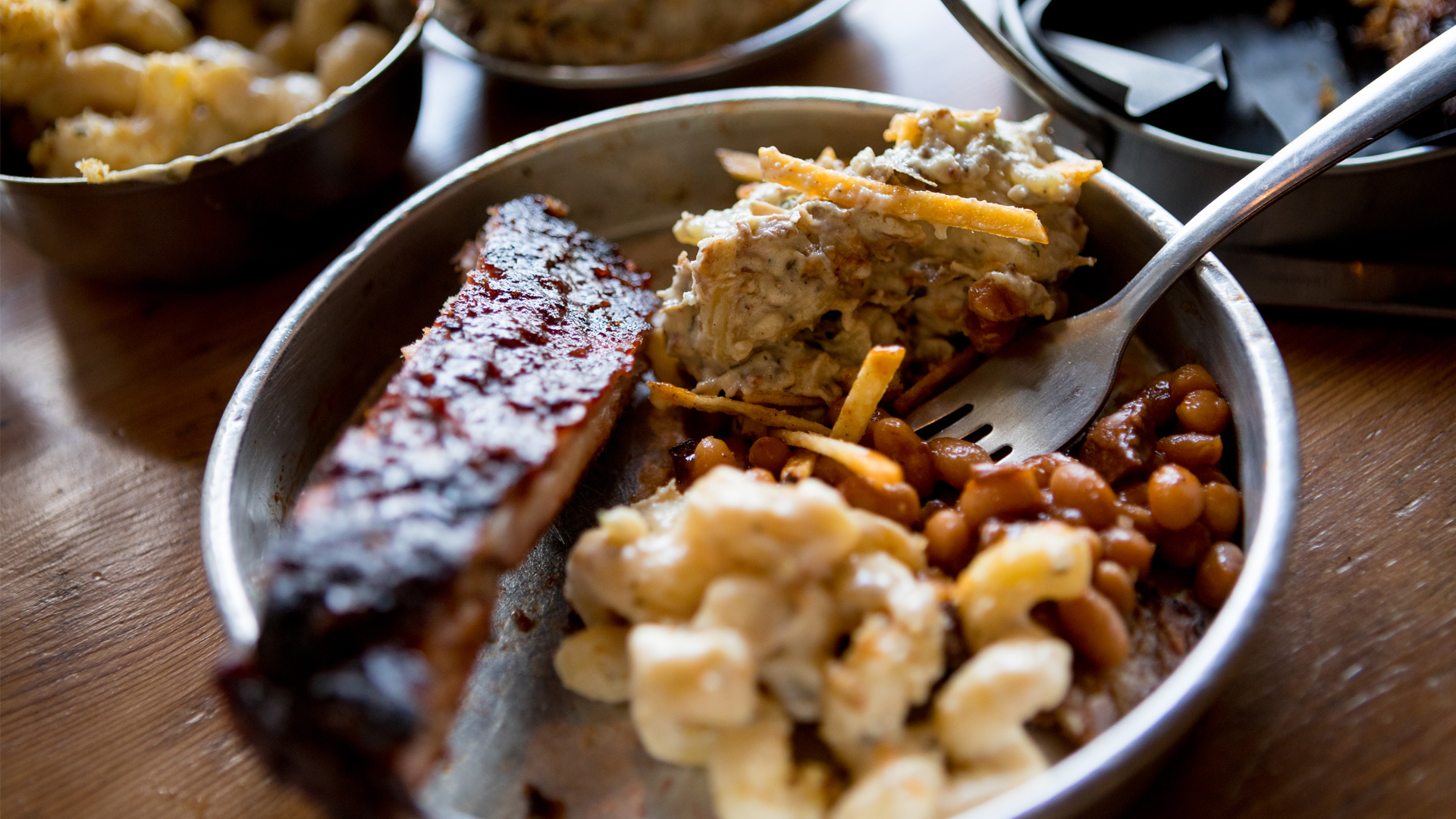Why do we crave comfort food?
Many of us seek solace in comfort foods during times of stress. But what makes them so appealing?

Swathes of people turn to comfort foods when they're feeling down, stressed or just need a little pick-me-up. Comfort foods are often associated with carefree memories and can, to some extent, provide a sense of warmth and reassurance. But why do we crave these foods time and time again? And, despite the name, do they actually comfort us?
Charles Spence, an experimental psychologist at the University of Oxford, thinks people associate comfort foods with positive and happy memories, both consciously and subconsciously.
"It is a food that someone was given when they were looked after as a child, for example, and is something that, as adults, people reach for when they feel emotionally threatened," Spence told Live Science.
Spence has written extensively about the psychology of comfort eating. In a 2017 paper published in the International Journal of Gastronomy and Food Science, he wrote that comfort foods tend to be simple to make, are often associated with some kind of past celebration, and are often high in sugars or carbohydrates, meaning they are nearly always calorific.
Why do people crave comfort food?
Research has found that the brain "rewards" people when they consume certain foods. According to a 2020 paper published in the journal Physiology & Behavior, the brain has "hedonic hotspots" — specialized subregions that amplify the rewarding feeling or "liking" of palatable tastes, including sugary, fatty and salty foods. This can result in a dopamine hit that amplifies a person's motivation to seek and consume palatable food rewards.
Therefore, people might be spurred on by their brains to seek out and consume particular foods.

But why is it that comfort foods are, generally speaking, somewhat unhealthy? And why is it uncommon to crave a salad or a stick of celery when you're attempting to boost your mood?
Dopamine is an essential brain chemical that plays a major role in establishing one's mood and, as noted in the aforementioned study, a person's inclinations towards reward and motivation. Various studies have found that certain foods — sometimes referred to as "hyper-palatable" foods — catalyze intense feelings of pleasure. As a result, the brain encourages us to pursue these items repeatedly.
According to the Harvard School of Public Health, hyper-palatable foods are generally easy to digest and are sweet, salty or rich. Hyper-palatable foods are known to stimulate the release of various hormones beyond dopamine, including insulin, cortisol (stress) and leptin (hunger). Increases in these hormones can lead to cravings for a particular food or taste. Healthy foods tend not to contain any of these elements — leafy greens, for example, are high in vitamins, minerals and fiber, but low in sugar and salt — and so a person's brain tends not to crave them in the same way it does a donut or a slice of pizza.
Are comfort foods really effective?
Comfort foods are an attempt to feel content or a means of allaying stress, but studies appear to indicate that they are not always effective at achieving this goal
A 2020 study conducted by OnePoll found that, to cope with the impacts of the pandemic and its associated lockdowns, two-thirds of U.S. adults, whether consciously or unconsciously, ate foods that they enjoyed during childhood. Nonetheless, less than half (41%) of respondents said they reach for comfort foods to "bring happiness."

What's more, in a 2022 poll of 2,000 U.K. adults carried out on behalf of the supermarket Aldi, one in four people admitted to eating comfort foods at least five times a week, even though over half (56%) said those meals made them feel worse. The same report found that 57% of participants confessed to being filled with regret upon eating their preferred comfort foods. Comfort foods, these studies appear to suggest, are effective at providing short term dopamine hits, but can often lead to feelings of remorse and shame in the longer term, perhaps because people are aware that these foods are not nutritionally beneficial for them.
Other research, however, has found that comfort foods do have the capacity to soothe us and provide feelings of solace — just no more than any other food. A 2014 study published in the journal Health Psychology concluded that comfort foods can result in an immediate mood lift, but found that any food, regardless of whether or not someone has been craving it, has the capacity to achieve the same outcome. The researchers said that individuals may be giving comfort food "credit" for mood effects that would have occurred even in the absence of that particular food.
Sign up for the Live Science daily newsletter now
Get the world’s most fascinating discoveries delivered straight to your inbox.

Joe Phelan is a journalist based in London. His work has appeared in VICE, National Geographic, World Soccer and The Blizzard, and has been a guest on Times Radio. He is drawn to the weird, wonderful and under examined, as well as anything related to life in the Arctic Circle. He holds a bachelor's degree in journalism from the University of Chester.










